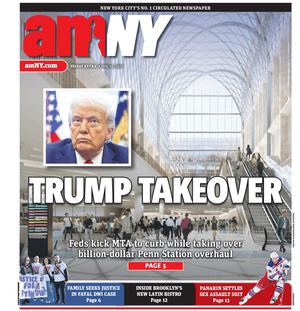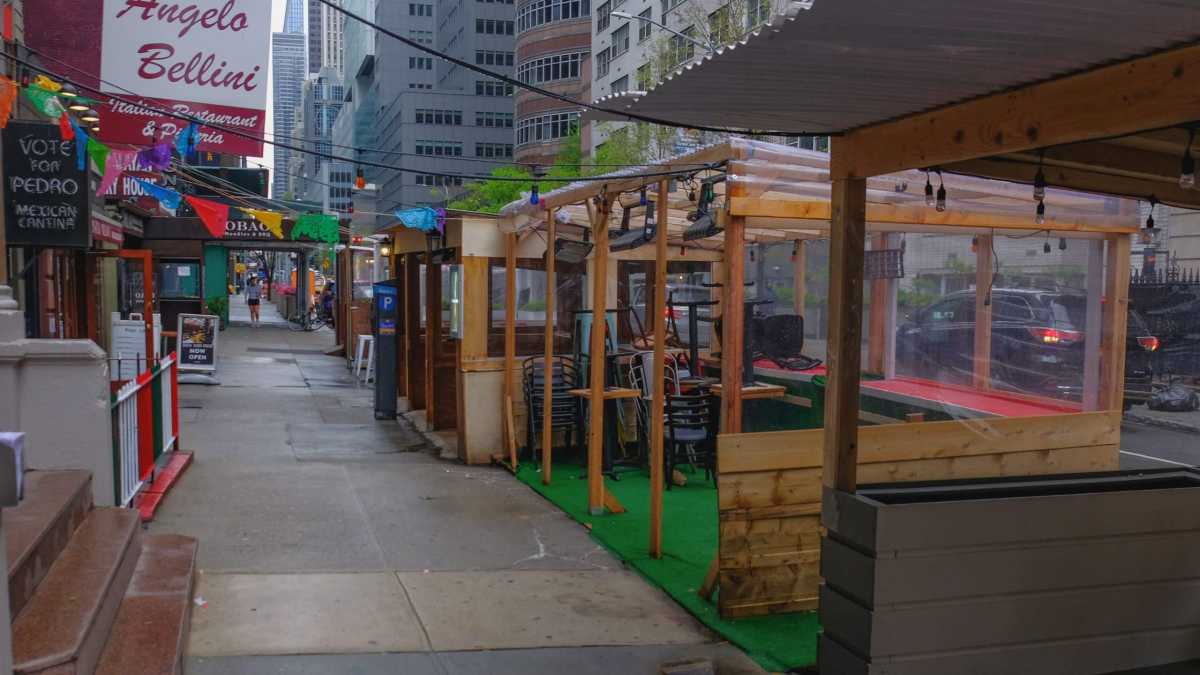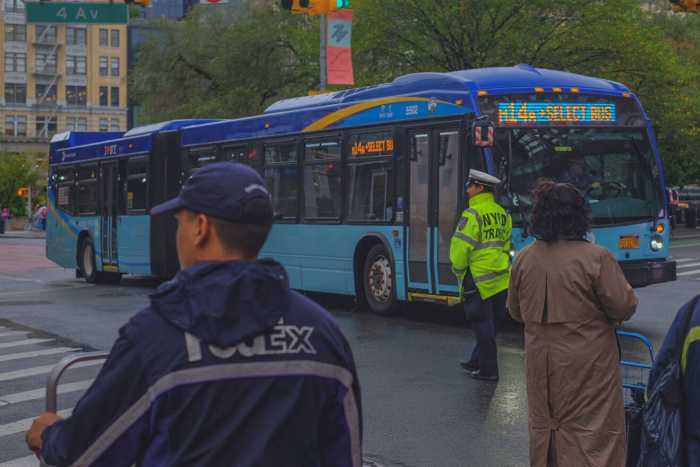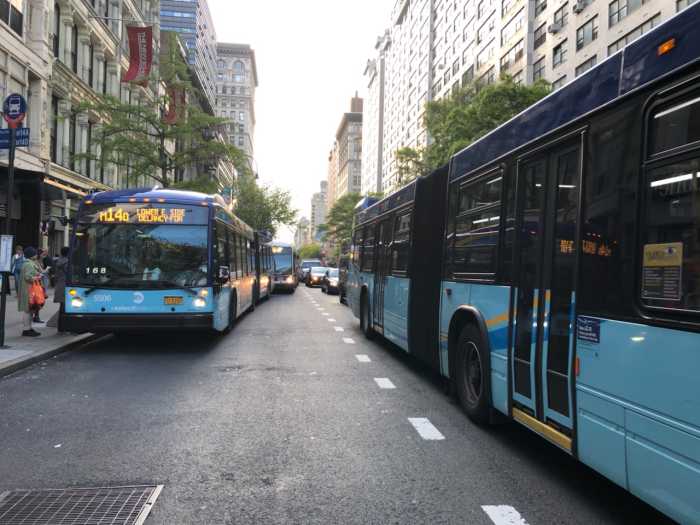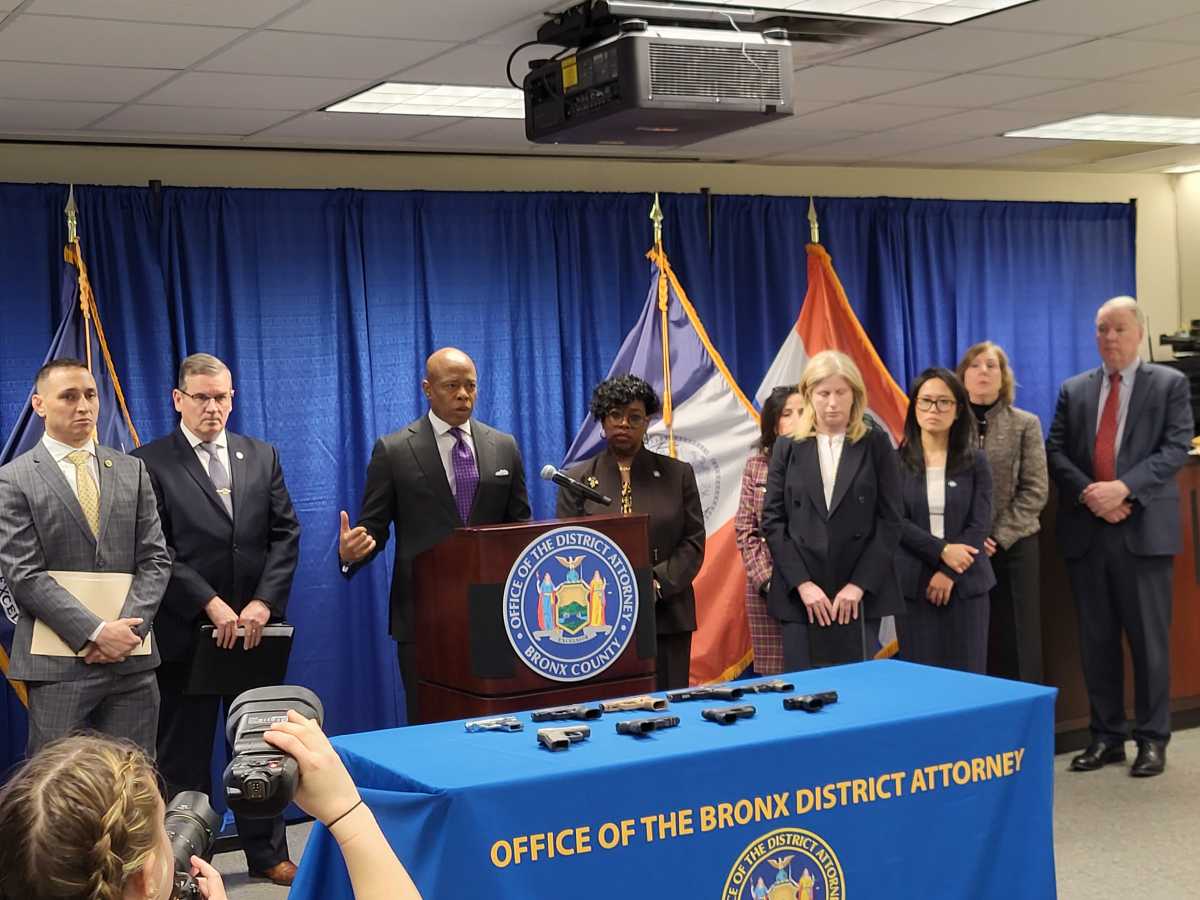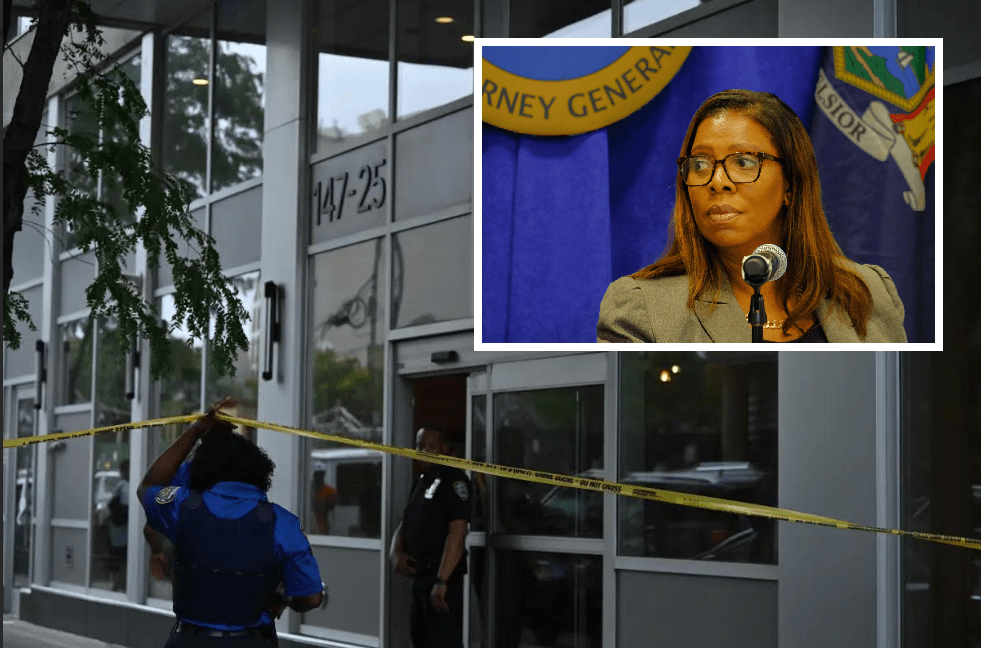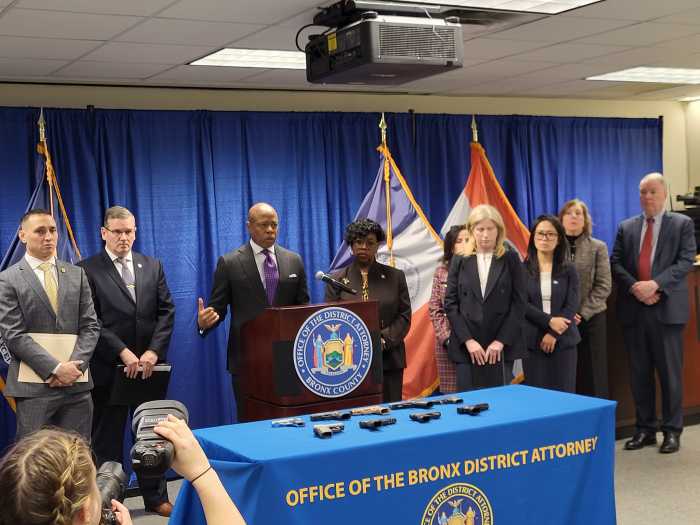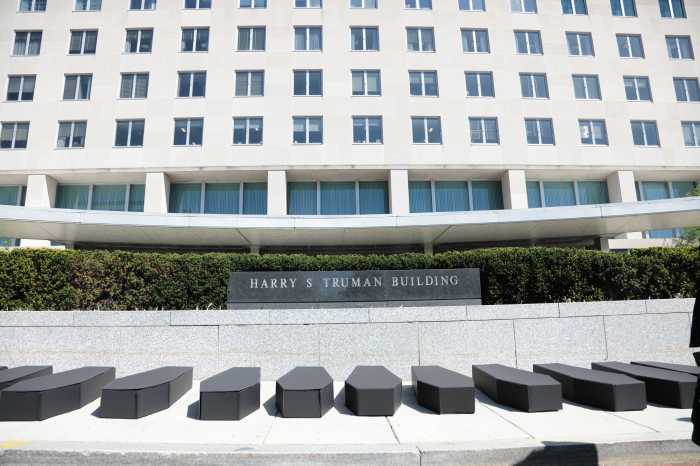New York City is conducting a canvass of outdoor dining sites across the five boroughs to determine how many are actually being used as advertised, Mayor Bill de Blasio said Monday — noting that if they’re not being used for dining, the city may yank permission to use sidewalk sheds and restore the space’s use as a parking spot.
The mayor said at his daily press briefing Monday that he’s instructed the city’s Department of Transportation to review the city’s approximately 10,000 outdoor dining sites, and to warn owners of sheds not being used for dining that they have a matter of days to become compliant.
“Go and review each one, go and talk to the owners of any place where they’re not using it for outdoor dining, and tell them they have a matter of days to get right or the site should be pulled back and opened up again for parking,” Hizzoner said on Oct. 18. “It’s only fair.”
Andrew Rigie, executive director of the NYC Hospitality Alliance, a restaurant trade group, said he supports removing abandoned dining sheds as part of a “permanent, standardized, and sustainable” program.
“Open Restaurants has been a lifeline for thousands of the city’s restaurants, saving countless of these small businesses, protecting 100,000 industry jobs, and enlivening the city’s streetscapes for the better,” Rigie said in a statement. “Developing a permanent, standardized, and sustainable Open Restaurants program is essential to the recovery of the city’s restaurant industry, and abandoned outdoor dining structures must not part of this program’s future. We support the city working with business owners to remove vacant and unused dining structures across the five boroughs and look forward to continuing to work with the city to make this critically important program permanent.”
A spokesperson for DOT said that the city has so far removed 24 “abandoned, non-compliant, or destroyed” outdoor dining setups, and has visited every single sidewalk shed multiple times for inspections since July 2020.
“The Open Restaurant Program has been pivotal to NYC’s recovery, keeping restaurants open and saving thousands of job. We also know that it is just as important to ensure the program operates as it was designed to, which includes inspections aimed at bringing businesses into compliance whenever possible,” said DOT spokesperson Alana Morales. “We inspect setups daily and have gone to every roadway setup multiple times since July 2020, totaling over 56,000 inspections. We also encourage New Yorkers to make complaints through 311 about any issues with outdoor dining setups, including structures that appear to be abandoned.”
Sheds are considered abandoned if a restaurant permanently closes. For those operating restaurants with noncompliant sheds, DOT sends emails, posts onsite, and proffers a cease-and-desist letter before removing edifices, Morales said, in a process that takes approximately three days.
The mayor has been supportive of outdoor dining, which allowed thousands of restaurants citywide, hammered by the pandemic and facing potential demise, to take over adjacent sidewalk or roadway space and convert it to dining, often with a sidewalk shed. His administration is currently devising a plan to make the “Open Restaurants” program, which he has credited with saving 100,000 hospitality jobs and countless restaurants facing pandemic doom, a permanent fixture in the city.
“We’re happy to see restaurants that went through hell for the last year-and-a-half have additional seating, have additional revenue, have a location people like. People like outdoor dining,” de Blasio said Monday. “And we want to see the restaurant community thrive and survive in this city.”
The permanent plan has, however, encountered substantial opposition within the city’s community boards, which are tasked with reviewing the proposal and issuing a non-binding recommendation. Several have already voted against approving the permanent plan, and opponents have shown up in droves to various board meetings to voice their discontent, usually citing the removal of parking, narrowed sidewalk space, or the potential danger of seating customers so close to a roadway.
The City Council last year approved legislation making outdoor dining permanent, after having previously been authorized as a temporary measure to help businesses stay afloat after the darkest days of the pandemic.
